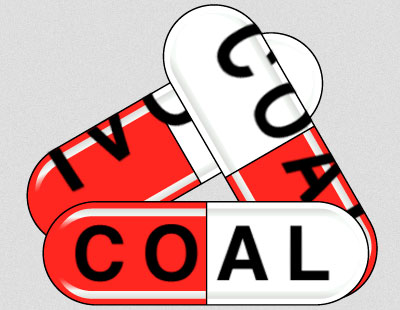 Cross-posted from ThinkProgress Green.
Cross-posted from ThinkProgress Green.
GOP leadership in Congress has decided to use must-pass payroll tax cut legislation as a vehicle to push key polluter priorities, despite a veto threat from the White House. House Republicans have attached a rider to extend a Clean Air Act loophole for the coal industry, daring a White House veto. The coal-powered poison pill, inserted into Title I, Section B of H.R. 3630 as the “EPA Regulatory Relief Act,” would establish a five-year delay in Boiler Maximum Available Control Technology (MACT) rules, striking down four Environmental Protection Agency rules. Section A is Rep. Lee Terry’s (R-Neb.) Keystone XL poison pill rider for the oil industry.
The Boiler MACT language, taken from Rep. Morgan Griffith’s (R-Va.) bill H.R. 2250, would keep in place a long-standing loophole in the Clean Air Act, one that exempted coal-fired “utility boilers” from regulations of their hazardous air pollutants like heavy metals, including mercury, arsenic, chromium, and nickel; and acid gases, including hydrogen chloride and hydrogen fluoride; and particulate matter, sulfur dioxide, and nitrogen oxides.
In October, as the House voted to pass Griffith’s bill and H.R. 2681, a related bill to exempt cement plants from clean air laws, as stand-alone legislation, the White House issued a veto threat [PDF] of the attempt to “undermine public health protections under the Clean Air Act.”
Today, the White House issued a new veto threat [PDF] for H.R. 3630, the payroll tax cut bill, including this poison pill:
H.R. 3630 seeks to put the burden of paying for the bill on working families, while giving a free pass to the wealthiest and to big corporations by protecting their loopholes and subsidies.
This rider, like the Keystone XL provision, is genuinely a poison pill. “For each year of delay,” the U.S. Climate Action Network noted [PDF], “thousands of people will die.”
However, both Griffith’s bill and its Senate counterpart, S. 1392, enjoy broad support in Congress. The legislation passed the House by a vote of 275 to 142, with no Republican opposition and 41 Democrats in support. The Senate bill, introduced by Sens. Susan Collins (R-Maine) and Ron Wyden (D-Ore.), has 40 co-sponsors in total, including 12 Democrats: Wyden, Mark Begich (Alaska), Kay Hagan (N.C.), Herb Kohl (Wis.), Mary Landrieu (La.), Joe Manchin (W.Va.), Claire McCaskill (Mo.), Barbara Mikulski (Md.), Bill Nelson (Fla.), Ben Nelson (Neb.), Mark Pryor (Ark.), and Jim Webb (Va.).




